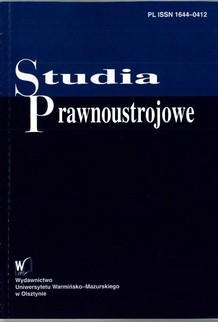Ewolucja charakteru prawnego roszczenia o zadośćuczynienie pieniężne z tytułu naruszenia dóbr osobistych
Evolution of the claim for the monetary recompense for the harm suffered in case of the infringement of individual’s personal interests
Author(s): Marek SobczykSubject(s): History of Law, Civil Law, Penal Policy, Comparative Law
Published by: Wydawnictwo Uniwersytetu Warmińsko-Mazurskiego w Olsztynie
Keywords: actio iniuriarum; personal interests; claim for the monetary recompense for the harm suffered;
Summary/Abstract: This paper deals with evolution of the claim for the monetary recompense for the harm suffered in case of the infringement of individual’s personal interests from antiquity to modern law. The regulations of the Twelve Tables Law and Roman actio iniuriarum aestimatoria are described briefly to demonstrate their penal and strictly personal character. The classical actio iniuriarum was a pure penal action, because the victim of iniuria could claim the payment of the pecuniary penalty to his own hands. Due to its strictly personal character it was both passively and actively untransmissible, that means that it could not be used against the perpetrator’s heir and by the heir of the victim. In further development of law the claim lost its penal nature and became a compensating one. Actio iniuriarum was rejected finally in 19th century. Modern claim for the monetary recompense for the harm suffered fulfills compensating function, not a repressive one, but as a rule it still cannot be raised by the victim’s heir.
Journal: Studia Prawnoustrojowe
- Issue Year: 2019
- Issue No: 45
- Page Range: 295-311
- Page Count: 17
- Language: Polish

